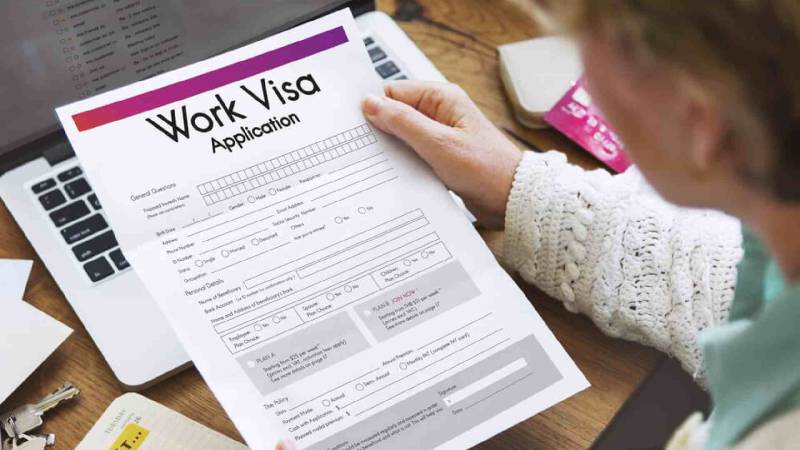The steps that employers should take to guarantee I-9 compliance and get ready for immigration site visits have been highlighted in our previous posts. Employers should also get ready for their workers with work visas to go abroad (for business or personal reasons) in light of new immigration laws that affect visa holders.
Employees returning to the United States (and to work) from overseas travel may experience delays due to recent changes in immigration policy and the visa processing process. Visa holders who are traveling outside the country for the first time on a new visa must have their visa stamped at a U.S. Embassy or Consulate in order to return to the United States.
First, on January 20, 2025, President Trump issued an executive order requiring that all foreign nationals be “vetted and screened to the maximum degree possible.” Under this direction, holders of H-1B visas and other work visas who travel overseas to have their visas stamped are likely to be examined more closely. In order to determine eligibility, the consular officer will need more information from sources other than the visa holder, therefore employers can anticipate that more visas will be placed in “administrative processing.” Long delays in administrative procedures may prevent visa holders from returning to the United States.
On February 18, 2025, the U.S. Department of State (DOS) revealed changes to the eligibility criteria for the Visa Interview Waiver, commonly known as the “dropbox” option. This program enables certain visa holders to have their visas stamped without the need for an in-person interview, greatly accelerating processing times for those who meet the requirements.
Previously, the dropbox option was accessible to individuals whose last visa had expired within the last 48 months. However, the DOS has reverted to guidelines established before the COVID-19 pandemic, reducing this period to just 12 months. Furthermore, the eligibility criteria have been refined—only applicants applying for a visa in the same category as their previous one will qualify. For instance, an H-1B visa holder can utilize the dropbox process only if their last H-1B visa expired within the past 12 months. If an H-1B holder previously held an F-1 (student) visa or if their last visa expired over 12 months ago, they will not be eligible for the dropbox option.
Consequently, employers should anticipate that more employees will need to attend in-person visa interviews, potentially leading to longer processing times and delays for some applicants.
There are already long wait times associated with the visa stamping procedure, particularly in nations like India where U.S. consulates process an extensive number of visa applications. Given that more visa holders must appear in person for interviews, workers with work visas and their employers may expect longer wait times for visa appointments as a result of these changes. Additionally, employers should be ready for the potential that workers may “get stuck” overseas for weeks or even months if their visa is placed in administrative processing.
To help prepare for the risks of international travel by employees with work visas, employers can take the following steps:
-
Encourage Early Notification: Remind employees to inform the appropriate company representative well in advance of any international travel plans. For employees who are not eligible for the dropbox process, employers should ensure they schedule a visa interview in time to match their travel dates.
-
Verify Job Details: Confirm that the employee’s current job information—such as their position, location, and salary—matches what was listed in their latest visa filing. Any changes in these details may require an updated filing to prevent delays in processing.
-
Prepare for Potential Delays: Consider how to handle situations where an employee gets “stuck” due to administrative processing or delays in visa interviews. Employers may opt to have these employees use paid time off or take unpaid leave to cover the extra time. Alternatively, employees may request to work remotely from their home country while awaiting a decision. Employers should consult with legal counsel before agreeing to this, as remote work from a foreign country can raise tax and employment law compliance issues.
-
Stay Informed on Immigration Law: Keep up-to-date with changes in immigration law, including any travel bans or regulations that could impact your employees’ international travel. Staying informed will help you navigate any unexpected challenges that may arise.





